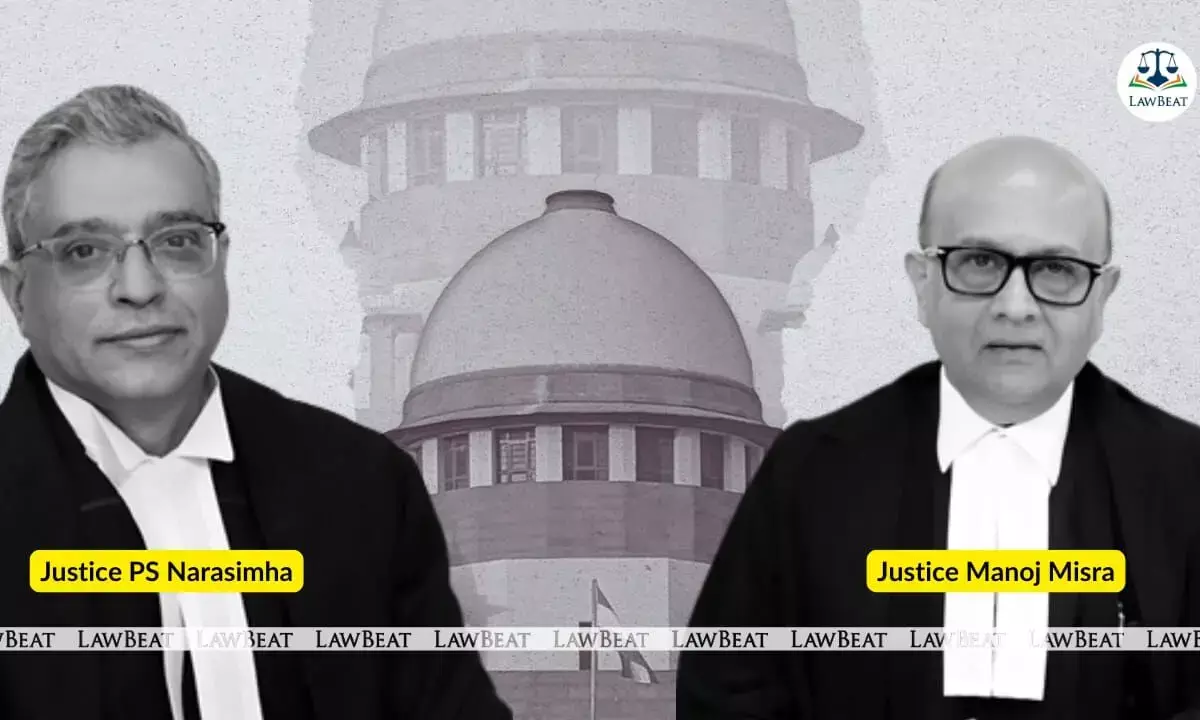Clause Contemplating Further Consent Not Arbitration Agreement: Supreme Court

The Supreme Court has ruled that an agreement which merely permits parties to seek arbitration, contingent on further mutual consent, does not qualify as an arbitration agreement under Section 7 of the Arbitration and Conciliation Act, 1996.
“Mere use of the word ‘arbitration’ or ‘arbitrator’ in a clause will not make it an arbitration agreement, if it requires or contemplates a further or fresh consent of the parties for reference to arbitration,” a bench of Justices P.S. Narasimha and Manoj Misra said.
The Court was deciding an appeal filed by BGM and M-RPL-JMCT (JV) challenging a Calcutta High Court order that rejected their request for appointment of an arbitrator under Section 11 of the 1996 Act.
The dispute arose from Clause 13 of the General Terms and Conditions between the appellant and Eastern Coalfields Limited. It stated that “in case of parties other than government agencies, the redressal of the dispute may be sought through Arbitration and Conciliation Act, 1996.”
Interpreting this clause, the bench held: “Use of the words ‘may be sought’ imply that there is no subsisting agreement between parties that they, or any one of them, would have to seek settlement of dispute(s) through arbitration. It is just an enabling clause whereunder, if parties agree, they could resolve their dispute(s) through arbitration.”
The Court reiterated that for a clause to qualify as an arbitration agreement, it must (i) involve a present or future legal dispute; (ii) reflect an intention to resolve the dispute through a private tribunal; (iii) include a written agreement to be bound by the tribunal’s decision; and (iv) reflect consensus between the parties.
It also explained that under Section 11, the referral court’s role is limited to prima facie satisfaction about the existence of an arbitration agreement. “The burden of proving the existence lies on the party invoking arbitration, but no detailed trial or inquiry is contemplated,” the Court noted.
However, the bench clarified that when the alleged arbitration agreement is in a single undisputed document, the court may simply peruse it to test if it meets the Section 7 criteria. On the other hand, when it arises from an exchange of letters or communications, and the documents prima facie establish its existence, the referral court should refer the matter to arbitration without delving deeper, especially since its opinion is not binding on the arbitral tribunal.
In the present case, the Court upheld the High Court’s view that Clause 13 required further agreement before arbitration could be invoked. Thus, there was no existing arbitration agreement, and the application under Section 11 was rightly dismissed.
Case Title: BGM and M-RPL-JMCT (JV) vs Eastern Coalfields Limited
Judgment Pronounced On: July 18, 2025
Bench: Justice P.S. Narasimha and Justice Manoj Misra
